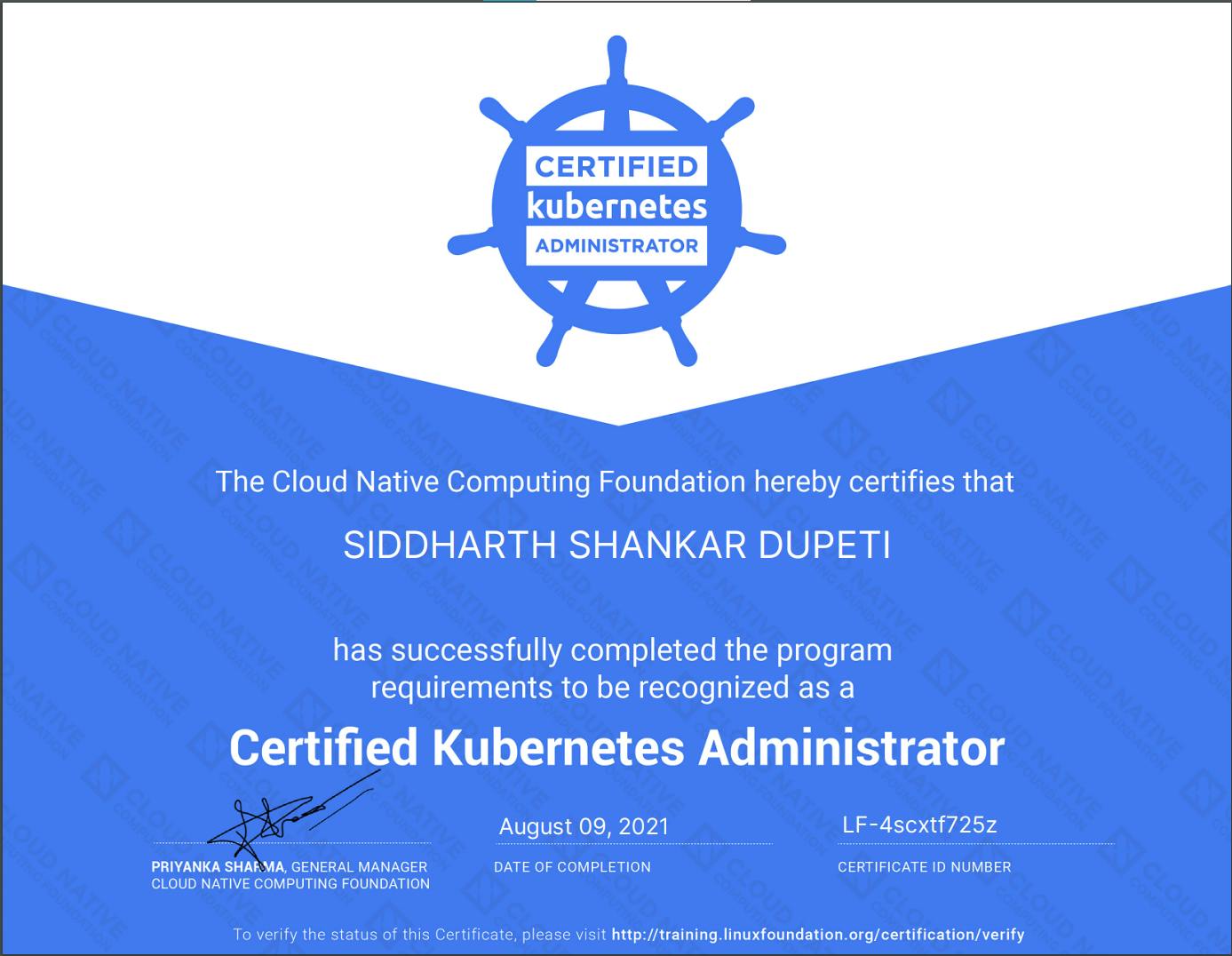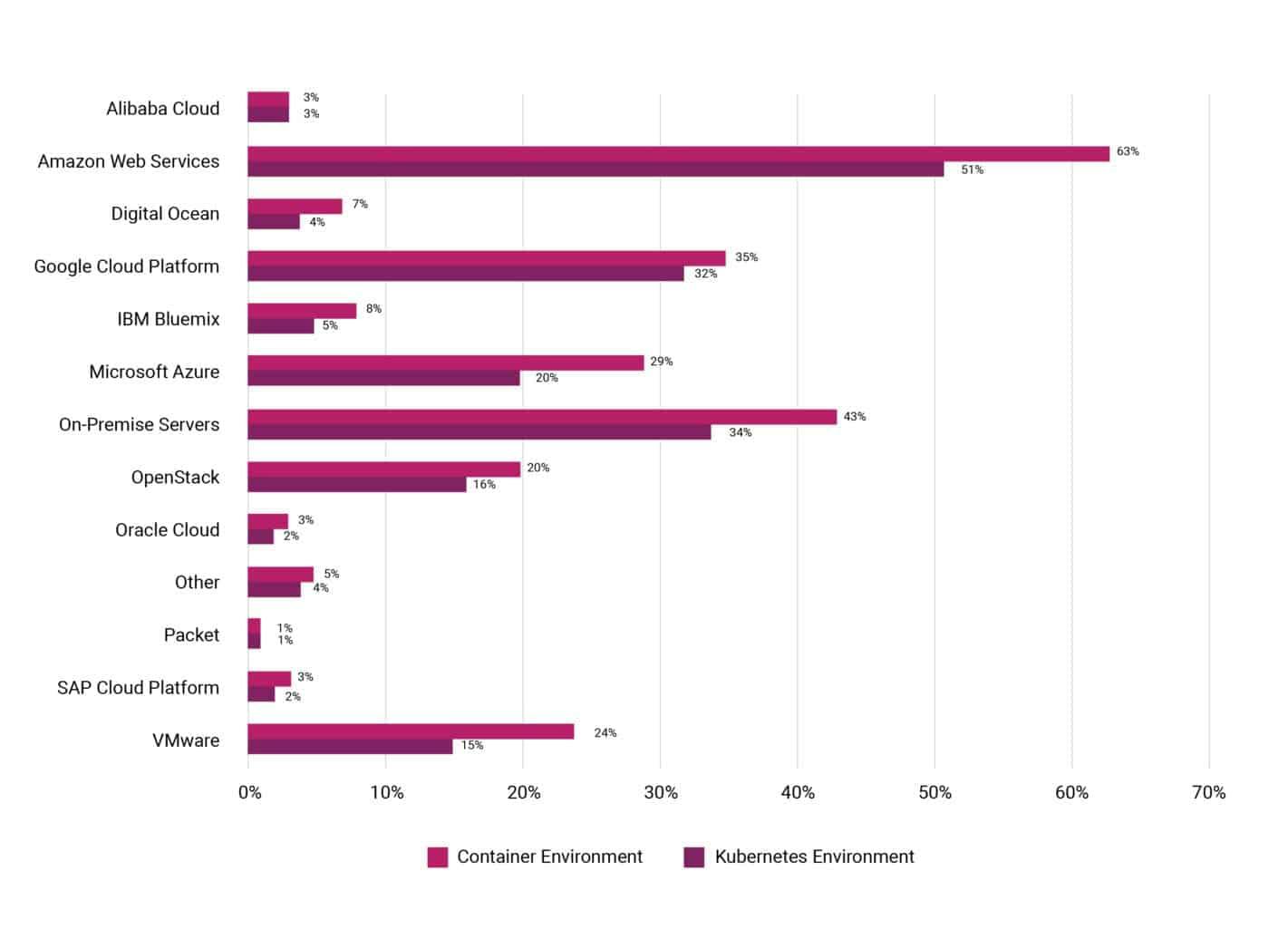My CKA Exam Experience and Some Useful Tips
"Kubernetes is no longer an open-source container-orchestration tool, it has become the de facto standard for backend infrastructure." - Engineer
So Recently, I cleared the Certified Kubernetes Administrator (CKA) Exam from the Linux foundation / CNCF, And the whole point of writing this blog is I want to clear a few doubts and settle down the hype/anxiety created around this certification.
So let's dive in and understand demand and supply for Kubernetes.
TL;DR - Take the Exam. It's Easy. Not too Easy, If you don't know the basis properly!!

Intro and History
Kubernetes is a FOSS system for automating deployment, scaling, and management of containerized applications. In simple words, It's a container orchestration tool.
It was originally designed by Google and is now maintained by the Cloud Native Computing Foundation (CNCF).
Kubernetes(Helmsman or Pilot) is a successor of Google's Borg Project. Kubernetes traces its lineage directly from Borg. Many of the developers at Google working on Kubernetes were formerly developers on the Borg project. The original code-name for Kubernetes within Google was Project 7, a reference to the Star Trek ex-Borg character Seven of Nine.
Supply and Demand
Kubernetes is one of the highest trending technology in Cloud Computing as of today. It had the fastest growth in job searches, job searches grew by 2,125% in 4 years to a survey conducted by Indeed. Therefore, 83% of tech professionals cited Kubernetes as their top choice for container management.
As per CNCF Survey, the Use of cloud-native technologies in production has grown by over 200% and 40% of respondents from enterprise companies (5000+) are running Kubernetes in production.

Why Hard Certification matters
Learning Kubernetes is essential for any DevOps professional. DevOps engineers are always in demand. Currently, the average Silicon Valley salary for a DevOps engineer is 20% higher than what a software engineer makes. And one of the most in-demand skills is Kubernetes Administration.
Having a certification shows that you not only possess a comprehensive knowledge of that technology, but you also care enough about your own career to spend the time and money to get certified. Which should be, commendable in your own eyes.
Certification offers a way for you to prove to potential employers, or your current employer, that you have the skills you say you do.
Most Valuable and Important Tips

Don't Panic, don't Stress. Be Relax and Take Mentos.
Stop looking for DUMPS. Don't waste your valuable time. Focus on practice.
Be familiar with** Imperative commands** instead of a definitive approach for creating Kubernetes resources. Believe me, there are time-savers.
The exam is time constraint. Read Candidate Handbook. Exams comprise 15-20 performance-based tasks. Only 2 hours to complete the entire exam. That gives** ~7 minutes** for each question. So be fast but with focus.
You don't need to configure the aliases. I have configured none, you will waste more time remembering the aliases than saving time with those.
Be familiar with Kubernetes Documentation, and use the search feature heavily. Read the Docs section mostly, and use browser search to find keywords. The tasks section would not be that helpful considering different scenarios.
Practice JSONPath in Labs, Practice combining multiple kubectl commands like running nested kubectl commands to get some output and do some redirection or range on top of it.
Target High weight-age questions first, we can see weight at the top. First, find out the highest weight question and solve that and then go in descending order.
Practice MOCK Exams and complete Killer Shell Labs if you can.
Once again, don't Panic. Don't read the Medium/Dev.to/Hackernoon or any blogs about its difficulty. That's just false hype created.
It's a pretty easy exam, very concise in terms of what and how things need to be done. There are three clusters, and six contexts, so you can grab, borrow and steal config from other clusters/contexts.
As per my report card, I attempted 16 questions out of 17 questions. I did not know the answer to that one question, so didn't bother to brainstorm. Just finished the exam two hours without scratching my head. I scored pretty well, dislike disclosing, and I'm super happy with it.
Some Valuable Prep Resources
Paid- Killer CKA Labs
Free - CKA Practice Questions
Conclusion
If you find this blog helpful, then show your support by the reaction. This will really encourage me to write more on the hash-node and keeps me motivated for blogging.
If there is anything I'm missing, then let me know in the comments.
By the end of this year, I'm planning to accomplish some more certificates. The next targets are, CKS and SAA02. If I'm hooked till then, I'll write about my experiences with those certifications as well :)
Ciao! ~

